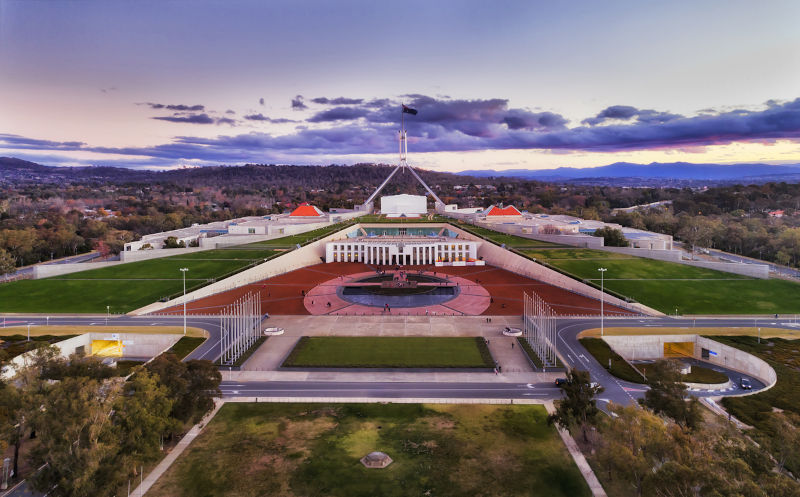A loss is a loss is a loss
March 4, 2024
A loss is a loss is a loss. The ever-astute Niki Savva bluntly summed up the significance of the Liberal Partys loss in the Dunkley by-election despite the denial and delusion of the partys reaction to it. Back in the real world, the Labor Party will be relieved and quietly pleased with an outcome that saw its candidate and the new member for Dunkley, Jodie Belyea, increase its primary vote something no pundits predicted - securing 52.7 per cent of the two party preferred (2pp) vote with a 3.6 per cent 2pp swing against.
While there are, of course, lessons for all major parties in this result Labor, Liberal and the Greens, whose vote plummeted 4 per cent to just 6.4 per cent - to see it only in terms of the relatively unremarkable swing against the government would be to miss its far greater significance elsewhere.
Political statistics are notoriously malleable and the average swing at a by-election is no exception. However taking as Antony Green does, the average swing against governments in government held seats since 1983 at 5.4 per cent, and even higher for Labor government held seats, on that count alone the Liberal Party and its candidate, Mayor of Frankston Nathan Conroy, fell far short of expectations. While the media universally predicted a knife-edge result in Dunkley and its usual cheerleaders headlined the 3.6 per cent swing against Labor as sending a strong message to the Albanese government, the real story lies elsewhere: that the Liberal Party had failed even to come close at a time and in a seat that could hardly have been more propitious for it.
After 13 interest rate rises, soaring housing costs and inflation only just beginning to fall, the major focus of voter concern and the key to their voting intentions was the cost of living, which was widely expected to hurt the government. With a high number of renters in rental stress, mortgage holders, and low to middle income young families, Dunkley is precisely the sort of seat the Liberals must win back if it is to win the next election. Add to that political calculus the fact that neither One Nation nor the UAP fielded a candidate, and this was the by-election for the Liberals to win. That it could barely muster half the 6.3 per cent swing needed to do so points to major problems in the partys electoral positioning, campaign strategy, and the political analysis underpinning them.
That Liberal leader Peter Dutton is still electoral poison in Victoria, where the Liberals now hold just two greater Melbourne seats, was apparent from his minimal presence throughout the campaign and notable absence on election day. However, if Dutton himself is a problem for the Liberals in Victoria, the partys campaign strategy was even worse. Divisive, negative, and disruptive, it revealed a party still locked in the antagonistic politics of the Morrison era roundly rejected at the last election, out of touch with an electorate that has moved on, devoid of policy initiative, and oblivious to the cost of living pressures which no amount of vacuous race-baiting slogans could address.
Nothing exemplified this political disconnect more than the attempt to reprise the fractious political logic of the Voice referendum for a by-election focused on cost of living pressures. It is a strange ahistoricism that could lead a party to imagine the unique political microclimate of a national referendum as in any way transferable to the particular and very different circumstances of a by-election in outer bayside Melbourne. The shadow minister for Indigenous Affairs, Northern Territory Senator Jacinta Price, demanded that Jodie Belyea explain her description of the referendum loss as the worst of white privilege. A demand which Belyea sensibly ignored and which only served to highlight just how irrelevant the Liberal Partys campaign had become.
And lets not forget the piece de resistance in this roll-call of electoral misjudgement, the intervention of deputy Liberal leader, Sussan Ley who, in a shameful racist tweet, warned the Dunkley electorate that their women were at risk of assault from foreign criminals. This picture of an electorate under siege was taken up by Dutton with enthusiasm during a rare by-election outing; If people here in Dunkley are worried about law and order issues, if youre worried about crime, the last person you want to vote for is Anthony Albanese. Which no-one actually was. It was amplified by the empty racist rhetoric of Advance whose $300,000 investment in a wrongheaded political strategy got the reception it deserved.
Even the Liberal candidate depicted his own community as a fearsome criminal hotspot whose residents were scared and sleeping with weapons next to themselves. At which point any professed concern for the cost of living crisis evaporated in another confected crime wave campaign reminiscent of so many others in the Victorian Liberals recent past electoral misfortunes. It was all rather odd. With an electorate so decisively focused on the cost of living why, as Laura Tingle asked, was the Liberal Party so determined to talk about something else?
Nevertheless, and symptomatic of the refusal to acknowledge the parlous state the party is in federally and in all mainland states, Sussan Ley courageously proclaimed the result in Dunkley a strong swing to the Liberal Party and an endorsement of Duttons leadership. Nothing to see here. The Liberal Party seems determined to paint this loss as a win and to reject any need for a change in direction. Without that recognition, reflection and renewal, it cannot win. And nor does it deserve to.
